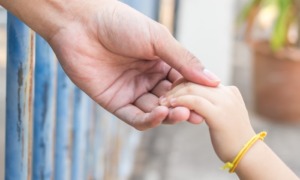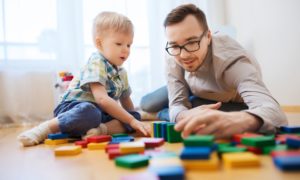The other day I saw yet another study about the important role that parents play in the lives of their children. Parents who sit down at dinner with their kids five or more times a week have an incredible influence on the behavior of their children. Compared with families who eat fewer than five dinners together a week, children in the first group are much less likely to use drugs or alcohol, less likely to smoke, and much more apt to delay sexual debut. It’s quite amazing.
Yet so many parents are absent from their children’s lives, and it is primarily for these neglected youth that so many programs are developed to help them have an equal opportunity for improved and successful futures. I am often struck by programs for youth that seek to include the parents of these same youth in some of their organized activities. I wish there were more, because research convinces me that with proper support, more parents can play positive roles in the development of their children.
I’d like to share two examples of programs that have included parents in the many things they seek to accomplish for the youth they take under their wing.
The first is known as the Fishing School, run by Tom Lewis, a retired Washington, D.C., policeman. Tom saw far too many youth in his community getting in trouble. He sought to do something about it by offering after-school and weekend activities, so their time could be used for beneficial purposes.
He soon noticed that many kids in his neighborhood were unsupervised from after school until late at night. He recognized that if these young people were to succeed, they would need the support of their mothers and fathers. Consequently, he required parents of youths enrolled in the program to volunteer in that program at least several hours a week.
While teaching the youth computer and other skills, Tom also devoted a great deal of his time to teaching parents how to be better parents. Most responded appreciatively.
Another successful program in Washington is Best Friends (for young girls), which has expanded to Best Men (for teenage boys). This is one of the more comprehensive positive youth development programs that I know of, providing a host of after-school activities and using adult mentors from every walk of life.
One major aspect of the program is the inclusion of parents in many activities, even if it is simply to help their children in a learning exercise. At every turn, parents are encouraged to take pride in their children’s accomplishments and help them achieve the goals they have set for themselves.
Youth-serving programs must focus primarily on the youth they serve, but seeing their parents as part of the solution rather than part of the problem must become a major goal. Every community has dysfunctional families, and I believe part of the responsibility of youth workers is to try to make them more functional.
Encouraging family meals may be one way, but certainly there are many others. Having the parents of a child you serve volunteer one or two hours of their time to help with your program can be another.
Nearly every sporting event needs timers, statisticians, coach helpers, snack distributors and the like. Nearly every dance group needs costumes, music, refreshments and a clean facility. There’s plenty of opportunity for virtually every parent to help, and in the process get to know their own kids better. They can also pick up some important parenting skills, if the program has that as one of its key objectives – which it should.
Many of the important lessons a program wishes to impart will be reinforced at home if the parent has a better understanding of the program’s objectives. Parents want to be there when their kids need them, but it often takes extra effort by youth workers to make that happen. If it does, everyone wins.
Shepherd Smith is president of the Institute for Youth Development, based in Sterling, Va. (703) 433-1640.




























